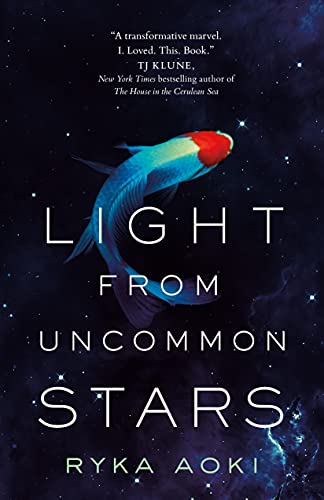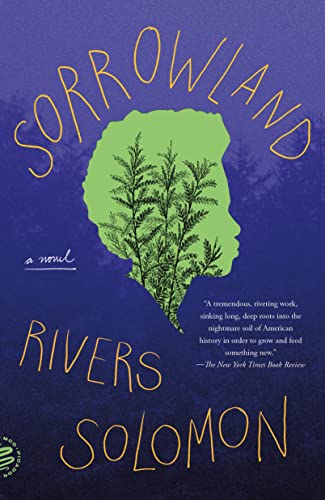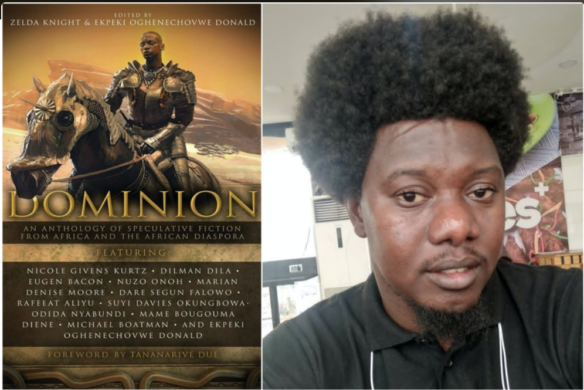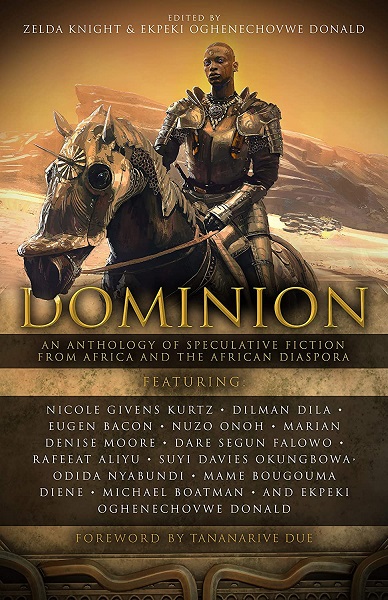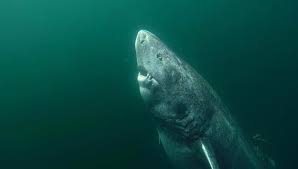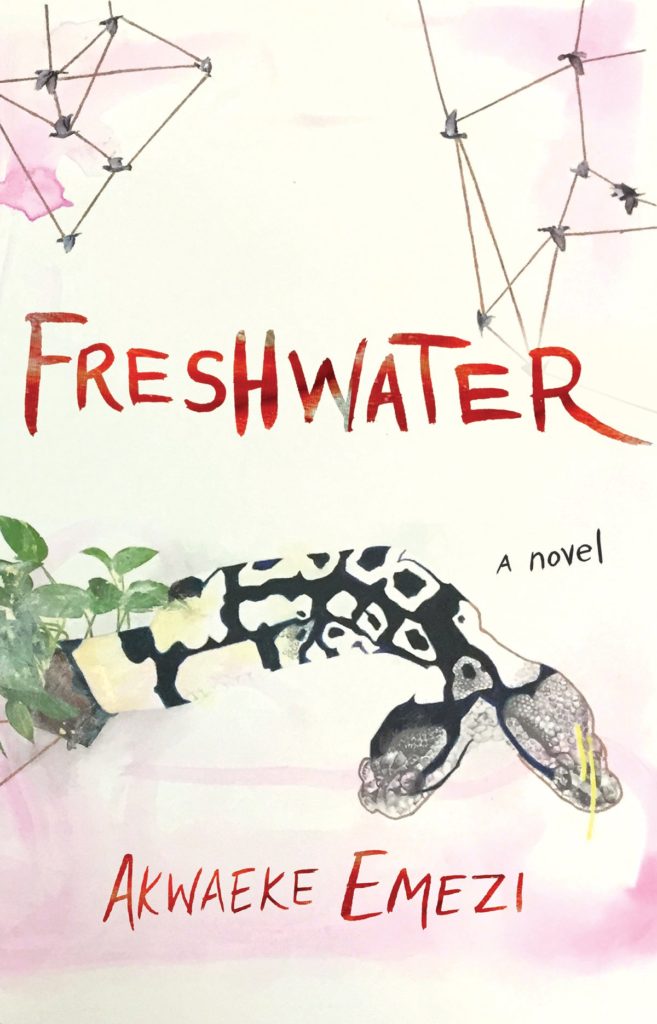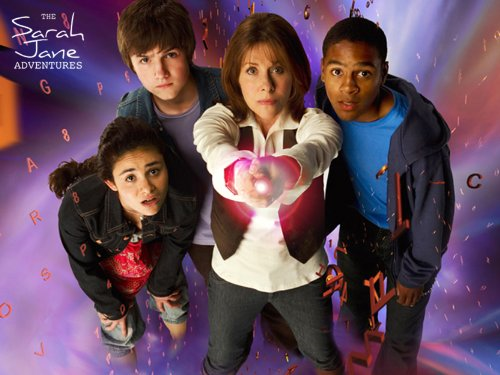(1) OTHERWISE AWARD UPDATE. Sumana Harihareswara, Motherboard chair, has shared news about the Otherwise Award in “Our pause and interim plans”.
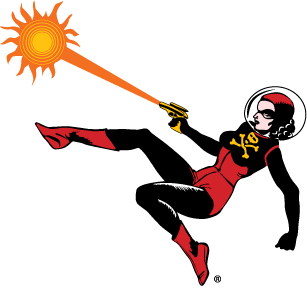
As has been the case for many volunteer-run organizations, the Otherwise Award has struggled since the start of the pandemic in 2020. Our (volunteer) board and other volunteers have had to juggle many more issues than previously around health, paid work, and caretaking concerns than previously, which has resulted in our falling behind on the administration and maintenance of the Award. We’re sorry that we didn’t communicate about this earlier—that made it hard for readers, authors, and publishers to know what to expect.
Our Motherboard met recently to discuss how to move forward. We remain dedicated to our mission: to celebrate science fiction, fantasy, and other forms of speculative narrative that expand and explore our understanding of gender . But we’re discussing how, as an organization, to continue to pursue that mission in a sustainable way, given our limited resources.
Here are the decisions we’ve made so far.
Most of our programs are paused. This is us acknowledging what’s already been happening. We were later than usual at deliberating and announcing the Awards for work published in 2020 and in 2021, and did not run a Fellowships process in 2021 or 2023. We have not yet convened a jury to consider works published in 2022, 2023, or 2024.
We intend to run the Fellowships this year. We will open applications in several months—August at the earliest, October at the latest.
We may honor 2022 and 2023 work in a different way. We’re exploring various approaches to celebrating work from those years. That celebration may end up taking a very different form than usual.
We’re considering alternative approaches to the Award in the future. It could be that we’ll convene a jury soon to read 2024 work and deliberate towards an Award, but if we do, we may change our practices to reduce the workload on individual jury members and to make our procurement system for recommended works less laborious. Also, we currently rely on volunteer work for almost all of the organization’s labor (exceptions being technological work on our website, and art commissioned to give to Award winners); we may try to find ways to focus more on paid labor.
We’ll be at Readercon. We usually honor the most recent Award winner at WisCon , but this year we have no new award winner, and WisCon is taking a break . So we will instead hold some Otherwise-related events at Readercon (July 11-14, 2024, near Boston, Massachusetts). Specifics to be determined.
(2) GET READY FOR THE OSCARS. Animation World Network has been running a series about this year’s Academy Awards nominees in the animation and effects categories.
Take a deeper look at ‘The Boy and the Heron,’ ‘Elemental,’ ‘Nimona,’ ‘Robot Dreams,’ and ‘Spider-Man: Across the Spider-Verse,’ all vying for the Best Animated Feature Oscar at the 96th Academy Awards coming March 10, 2024.
Take a deeper look at ‘The Creator,’ ‘Godzilla Minus One,’ ‘Guardians of the Galaxy Vol. 3,’ ‘Mission: Impossible – Dead Reckoning Part One,’ and ‘Napoleon,’ all vying for the Best Visual Effects Oscar
Take a deeper look at ‘Letter to a Pig,’ ‘Ninety-Five Senses,’ ‘Our Uniform,’ ‘Pachyderme,’ and ‘War Is Over! Inspired by the Music of John and Yoko,’ all vying for the Best Animated Short Film Oscar
(3) MEETING BUTLER. Syrus Marcus Ware delves into memory to bring us “Octavia E. Butler, Remembered”, a 2022 article at Them.
When the novelist Octavia E. Butler entered a room, you felt it. Tall, commanding, yet soft-spoken, the author’s presence inspired as much comfort as attention; you couldn’t help but be enraptured by her. The first and only time I met her was on a rainy afternoon in 2005. She was in Toronto promoting Fledgling, a brilliant novel about a young racialized vampire who challenges the white supremacy of the wider vampire community. I had been granted an hour’s time to interview not only my favorite author, but the dreamer who inspired me to become a speculative fiction writer and artist. What was supposed to be an hour turned into an entire day in her bountiful presence….
(4) BARDS AND SAGES CLOSING. Walter J. Wiese writes, “I seem to have a track record of having publications close right before they’re about to print my work. I had a story due to appear in the April issue of B&SQ.”
Bards and Sages Publishing posted a “Closure Announcement” saying they were shutting down beginning this week.
Effective March 6, 2024, I will begin the process of winding down Bards and Sages Publishing. There is a lot that needs to be unraveled and sorted out before I can formally close everything down. The most immediate impact is the closure of the Bards and Sages Quarterly and ceasing publication of new issues.
If you are an author or artist who was previously published in an issue of the Bards and Sages Quarterly, those issues will remain on sale until the end of 2024. After that, all back issues will be removed from sale, and all rights will revert to their respective authors.
The same is true for back issues of The Society of Misfit Stories and all of our anthologies. These will remain on sale through the end of the year and then unpublished. At that time, all rights will revert back to their respective authors and artists.
I’ve already informed our authors that we have stand-alone publishing contracts with about the decision. I will work with those authors individually to make sure all of their rights revert to them in a timely manner, and provide them with any raw files we have of their books. They will be free to use those files to either self-publish or take to another publisher if they wish.
Regarding our RPG offerings: I own all rights to the RPG materials through work-for-hire agreements. If other publishers are interested in buying the rights to any of our RPG products or properties, I will entertain offers. Email [email protected] to discuss.
With that out of the way, I want to provide the reasons for this decision.
As I have noted previously, I have been struggling with mental health issues for some time now. I am being treated for generalized anxiety and depression, and though my condition has improved, I’m still not where I feel I need to be to properly commit the time and effort needed to being an effective publisher.
At the end of last year, I was diagnosed with additional physical health issues that will require surgery and treatment. While none of them are life-threatening, they are an additional weight that requires my attention.
As most people who have known me a while also realize, publishing has always been my love, but it has never been my primary income source. Like a lot of micro presses, I have a proverbial “day job,” and that day job has become increasingly more complex over the last few years….
All of these issues impacted my decision. However, I also have to confess to what may have been the final straws. AI…and authors behaving badly….
(5) CARR-LICHTMAN CATALOG. Mark Funke Books has posted an online SF Catalog of Terry/Carol Carr and Robert Lichtman Material – see it here: “Science Fiction Archives”. (Click for larger image.)
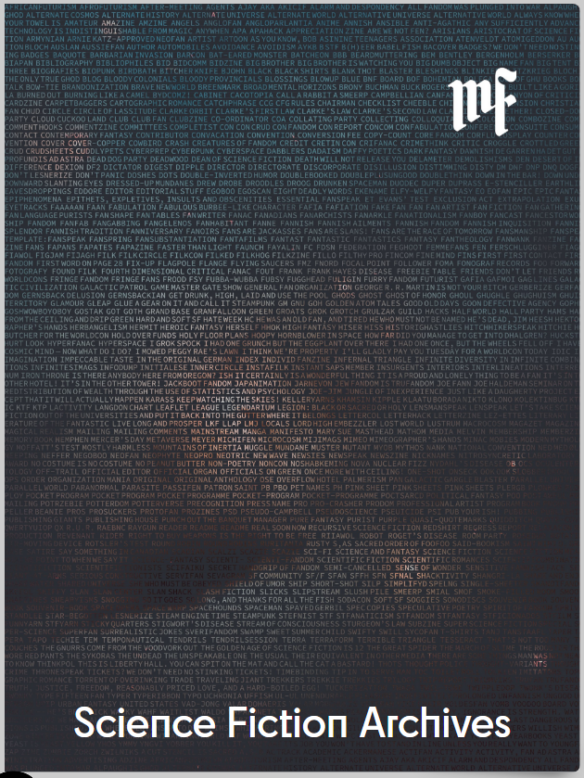
(6) KUNG FU PANDA PUTS MOVES ON DUNE AT BOX OFFICE. Dune: Part Two could not hold onto first place in its second weekend at theaters reports Deadline: “Box Office: ‘Kung Fu Panda 4’ Kicking Up $55M For Second-Biggest Franchise Debut”.
Universal/DreamWorks Animation’s Kung Fu Panda 4 is coming in higher with a $19.4M Friday (including previews) and $55M, which is the same amount that How to Train Your Dragon: Hidden World opened to back in 2019. Brand animation always opens big. That’s still the second best stateside start for the Kung Fu Panda franchise. CinemaScore is A-, the same grade as the first movie, but a notch down from the As earned on two and three.
Legendary/Warner Bros’ Dune: Part Two earned around $12.3M yesterday for what’s shaping up to be a $44M second weekend, -47%, for a running total of $154.7M. With those two movies leading the pack, it’s shaping up to be a $133.3M weekend, +13% over the same frame a year ago when Scream VI bowed. Wow. It’s been a while since we’ve seen an up weekend.
Lionsgate/Blumhouse’s Imaginary is third with $3.6M yesterday (including previews) at 3,118 theaters for what’s shaping up to be a $9.3M opening. Not shocking to see this movie below its $10M-$14M projection, nor saddled with a C+ CinemaScore and 57% on PostTrak. It is rather slow for a PG-13 horror film and there’s nothing really hip to hook the girls ala M3GAN. But it was cheap to make at $10M. Still more product means depth at the box office….
(7) GROW UP? TO HECK WITH THAT. “Miriam Margolyes Says Harry Potter Fans Should Be Over Films By Now” in an interview with The Hollywood Reporter.
Harry Potter actress Miriam Margolyes has some thoughts about the people who are still superfans of the famous film franchise.
During an interview with New Zealand’s 1News network, Margolyes was asked how Harry Potter and Blackadder fans approach her differently when they see her in public. She explained that fans of the British sitcom that starred Rowan Atkinson usually ask her to say “Wicked child.” But instead of answering the question about Harry Potter, she decided to share how she feels about the fandom.
“I worry about Harry Potter fans because they should be over that by now,” Margolyes said. “It was 25 years ago, and it’s for children,” clarifying, “I think it’s for children.
The actress portrayed Professor Pomona Sprout in the film franchise. Her character taught herbology and was the head of the Hufflepuff House. While speaking with the host, Margolyes seemed confused about the fact that those who grew up with the books and movies are still so engrossed in the Wizarding World, despite being adults at this point.
“They get stuck in it,” she explained. “I do Cameos, and people say, ‘We’re having a Harry Potter-themed wedding, and I think, ‘Gosh, what’s their first night of fun going to be?’ I can’t even think about it. No.”
She did note, “Harry Potter is wonderful. I’m very grateful to it” but doubled down on her original thought, which is that “it’s over.”…
(8) IT’S IMPOSSIBLE. One of the audiobooks up for the British Book Awards is Impossible Creatures by Katherine Rundell, narrated by Samuel West (Bloomsbury Children’s Books). Publishing Perspectives reports: “British Book Awards: 2024 Books of the Year Shortlists”.
(9) FIVE TO DRAW TO. Lisa Tuttle’s “The best recent science fiction and fantasy – reviews roundup” for the Guardian covers The Mars House by Natasha Pulley; Annie Bot by Sierra Greer; The Warm Hands of Ghosts by Katherine Arden; Jumpnauts by Hao Jingfang; and Alien Clay by Adrian Tchaikovsky.
(10) TODAY’S BIRTHDAY.
[Written by Cat Eldridge.]
Born March 9, 1955 — Pat Murphy, 69. What work do I like most that Pat Murphy’s done? Well that’d be There and Back Again, by Max Merriwell if only because it, a) was indeed a lovely and playful take off The Hobbit, and b) shows how bloody obstinate, well I had another phrase in mind, that the Tolkien Estate can be at times which is why it’s no longer in print though copies are available at I think are still reasonably priced rates.

Of her first two novels, The Shadow Hunter had Neanderthals and time travelling, and oh my!, her second, The Falling Woman, was about an archaeologist who sees the spirits of ancient people while she walks at dusk and dawn. Fascinating. Thirty-six years on, it’s still perfectly readable. And it won a Nebula which it most definitely deserved.
Now I get to The City, Not Long After, the novel that I love nearly as much for its depiction of an empty magical San Francisco as I do for the characters and the story set there. Don’t get me wrong — both of those are stellar too. I get tingly thinking of this novel, something that I admit is rare.
Let’s me finish off the novels I like by her with Adventures in Time and Space with Max Merriwell about a cruise that gets, shall I say, delightfully improbable near or even within the Bermuda Triangle? Yes, it’s written by the same writer who penned by the story that the Tolkien Estate took umbrage to.
As for her short fiction, it is excellent. Both the “Rachel n Love” novelette and the “Bones” novella that first appeared in Asimov’s Science Fiction Magazine would win a Nebula, the former would also win a Sturgeon — the Award, not a fish. Sorry I couldn’t resist. Her 1990 Points of Departure anthology, which won a Philip K. Dick Award, is a generous sampling of her short work and has the “Rachel n Love” novelette and the “Bones” novella in it.
She’s hasn’t published anything in five years, so let’s hope something is forthcoming.
(11) COMICS SECTION.
- Baldo’s Gracie is an example of many of us.
- Herman has an unidentified problem.
- Lio meets some offworld fans.
- Macanudo points out a problem for Batman.
- Free Range suggests writing peer pressure goes way back.
- Non Sequitur has an early editor.
(12) SHE’S A ROCKETGIRL. [Item by Steven French.] Andrew Rovenko, a Ukrainian born photographer now living in Australia was named Australian Photography Magazine’s photographer of the year for this wonderful shot of his daughter in her home-made spacesuit. His photos have been collected in The Rocketgirl Chronicles – see a gallery at the link. Full story at the Guardian: “Rocketgirl on her sixth lockdown: Andrew Rovenko’s best photograph”.
During the pandemic, Melbourne held the world record for the highest number of days spent in lockdown. That’s not really a record you want to have. My family – me, my wife Mariya and our daughter Mia who was four at the time – had done all the standard things: puzzles, daily walks, baked sourdough. By lockdown number six, options for new activities were scarce. But Mia’s obsession with space gave us an idea – to make her a spacesuit. My wife had trained as a costume designer and she thought it might brighten Mia’s day to show her how something can be created from scratch. The best bit was making the papier-mache helmet: they blew up a little balloon and then stuck newspaper cuttings around it.
At the time, we were allowed outside for only two hours each day, and we had to keep within a 5km radius of our home. Having this suit as a prop had a transformative effect on our outings, turning them into space exploration missions. Even as adults, if you put a bold piece of clothing on, you start to play the role of the costume….
(13) JEOPARDY! [Item by David Goldfarb.] The second round of the Jeopardy! Tournament of Champions semifinals featured two questions involving SFF. The very first clue of the game was Literary Awards for $600:
Octavia Butler got the inaugural Infinity Award by the Science Fiction & Writers Association at these star-studded awards
Emily Sands knew this was the Nebula Awards.
Later we had Literary Awards for $1000:
The Hugo Award isn’t named after Victor Hugo, but this Hugo who founded the sci-fi magazine Amazing Stories
Yogesh Raut responded “Who is Luxembourg’s Hugo Gernsback?”
Did you know that Gernsback was from Luxembourg? I did, but only because I had previously learned it from listening to one of Yogesh’s podcasts.
(14) AREA 51 EIGHTY-SIXED. “Pentagon Review Finds No Evidence of Alien Cover-Up” – the New York Times discusses the report.
In the 1960s, secret test flights of advanced government spy planes generated U.F.O. sightings. More recently, government and commercial drones, new kinds of satellites and errant weather balloons have led to a renaissance in unusual observations.
But, according to a new report, none of these sightings were of alien spacecraft.
The new congressionally mandated Pentagon report found no evidence that the government was covering up knowledge of extraterrestrial technology and said there was no evidence that any U.F.O. sightings represented alien visitation to Earth.
The 63-page document is the most sweeping rebuttal the Pentagon has issued in recent years to counter claims that it has information on extraterrestrial visits or technology. But amid widespread distrust of the government, the report is unlikely to calm a growing obsession with aliens.
Maj. Gen. Patrick Ryder, a Defense Department spokesman, said the Pentagon approached the report with an open mind and no preconceived notions, but simply found no evidence to back up claims of secret programs, hidden alien technology or anything else extraterrestrial.
“All investigative efforts, at all levels of classification, concluded that most sightings were ordinary objects and phenomena and the result of misidentification,” General Ryder said in a statement.
While many reports of what the government now calls Unidentified Anomalous Phenomena remain unsolved, the new document states plainly there is nothing to see. The Pentagon’s All-domain Anomaly Resolution Office concluded that if better quality data were available, “most of these cases also could be identified and resolved as ordinary objects or phenomena.”…
(15) VIDEO OF THE DAY. FirstShowing introduces the “Final Trailer for Netflix’s ‘3 Body Problem’ Mind-Bending Sci-Fi Series”.
“I have to tell you something… something insane, but true, about all of us. It started a long time ago. Back in 1977 they detected a sequence…called it the wow signal.” Netflix has revealed their final official trailer for 3 Body Problem, an adaptation of the sci-fi books of same name from Liu Cixin, which many believe are near impossible to adapt. 3 Body Problem is a series inspired by the renowned story about discovering we are not alone in the universe. From the Game of Thrones creators David Benioff and D.B. Weiss. A young woman’s fateful decision in 1960s China reverberates across space and time to a group of brilliant scientists in the present day. As the laws of nature unravel before their eyes five former colleagues reunite to confront the greatest threat in humanity’s history.
[Thanks to Chris Barkley, Cat Eldridge, SF Concatenation’s Jonathan Cowie, Kathy Sullivan, Daniel Dern, Walter J. Wiese, David Goldfarb, Jeffrey Smith, Steven French, Mike Kennedy, Andrew Porter, and John King Tarpinian for some of these stories. Title credit belongs to File 770 contributing editor of the day Daniel Dern.]

